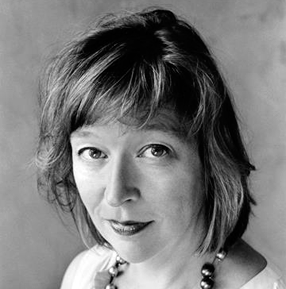Self-Portrait on the Street of an Unnamed Foreign City
The lettering on the shop window in which
you catch a glimpse of yourself is in Polish.
Behind you a man quickly walks by, nearly shouting
into his cell phone. Then a woman
at a dreamier pace, carrying a just-bought bouquet
upside-down. All on a street where pickpockets abound
along with the ubiquitous smell of something baking.
It is delicious to be anonymous on a foreign city street.
Who knew this could be a life, having languages
instead of relationships, struggling even then,
finding out what it means to be a woman
by watching the faces of men passing by.
I went to distant cities, it almost didn’t matter
which, so primed was I to be reverent.
All of them have the beautiful bridge
crossing a grey, near-sighted river,
one that massages the eyes, focuses
the swooping birds that skim the water’s surface.
The usual things I didn’t pine for earlier
because I didn’t know I wouldn’t have them.
I spent so much time alone, when I actually turned lonely
it was vertigo.
Myself estranged is how I understood the world.
My ignorance had saved me, my vices fueled me,
and then I turned forty. I who love to look and look
couldn’t see what others did.
Now I think about currencies, linguistic equivalents, how
lop-sided they are, while
my reflection blurs in the shop windows.
Wanting to be as far away as possible exactly as much as still
with you.
Shamelessly entering a Starbucks (free wifi) to write this.
Copyright © 2015 by Jennifer Grotz. Originally published in Poem-a-Day on September 21, 2015, by the Academy of American Poets
“Ut pictura, poesis: as with painting, so with poetry, the saying goes, and perhaps this is why from time to time poets, like painters, use the exercise of the self-portrait to practice seeing. If either the poet or the painter is lucky, sight leads to insight. In this unabashedly autobiographical poem, I use a shop window on a busy street, not a mirror, to view myself, and though my poem aims for truthful precision, I think it renders what, I’m convinced more and more, poems are meant to achieve, that is: registering what it feels like to pass through time.”
—Jennifer Grotz

